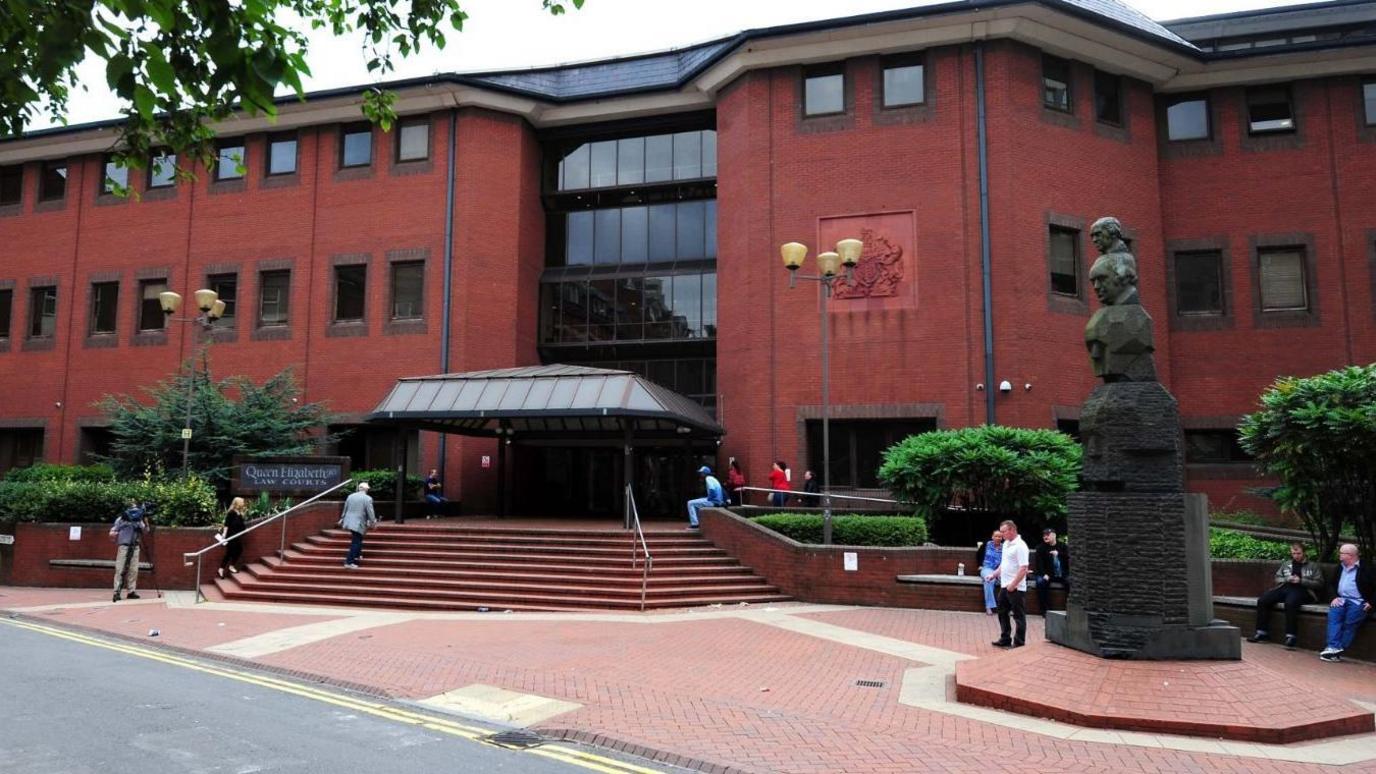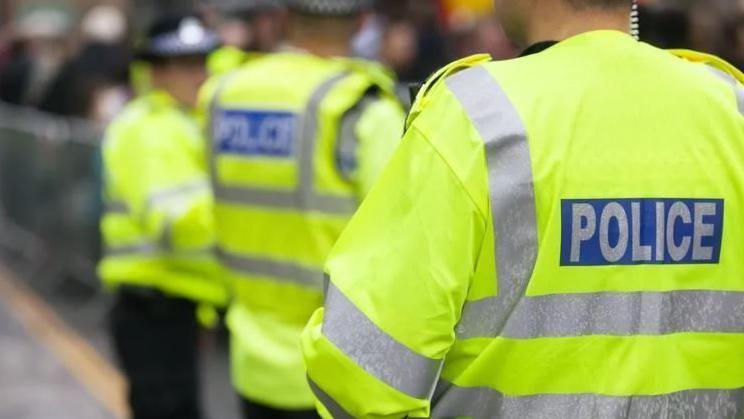Terror trial begins of man accused over bomb video

Prosecutors at Birmingham Crown Court said the case centred on a video file found on Adam Mahmood's phone
- Published
A man has gone on trial accused of possessing a video explaining how to make a bomb of a sort previously used in terror attacks in the UK.
Prosecutors said the case centred on a video file found on Adam Mahmood's phone after his arrest in April 2024, which also led to the discovery of several knives and two sharpeners in his bedroom.
Jurors were told a photo of Mr Mahmood, associated with his TikTok account of more than 27,000 followers, showed him in a balaclava, plus various weapons including a bow, axe and sword.
The 20-year-old of Platt Brook Way in Sheldon, Birmingham, denies a charge of possessing a recording likely to be useful to a person committing or preparing an act of terrorism.
Birmingham Crown Court heard on Monday that the 14-minute video, which was not in English and had a translation at the bottom, was last accessed on March 24 last year, having been created via the Telegram app in October 2023.
According to prosecutor Sahil Sinha, the accused argues he had "a reasonable excuse" to possess the video.
'Detailed guide'
Mr Sinha told the court the video provided "a detailed guide" to producing an explosive substance with a detonator and shrapnel to make a complete bomb.
The prosecutor added: "An expert has assessed that the instructions are viable to make an improvised explosive device."
The type of explosive had previously been used in terrorist attacks, Mr Sinha said, including those in the UK, and was "too unstable to have viable commercial use".
To prove the case against Mr Mahmood, Mr Sinha said, the Crown must satisfy jurors that the video contained information of a kind likely to be useful to a person committing or preparing an act of terrorism which involved "the use of threat of action that involves serious violence, serious damage, endangerment of life, serious risk to health and safety, or perhaps serious disruption to an important electronic system".
Mr Sinha told the jury: "What we are not talking about is everyday documents like timetables or maps.
"This is an offence designed to catch information of use to terrorists as opposed to ordinary people.
"It is not necessary for the prosecution to prove that the defendant himself is a terrorist or was himself planning an act of terrorism.
"The question for you is whether this video would be of a kind likely to be useful to someone that was."
'Message of thanks'
The court heard Mr Mahmood asked another TikTok user to send him the bomb-making video and received it via Telegram, sending a message of thanks soon afterwards.
Mr Sinha said: "Not only did the defendant know he had received this video, he had specifically sought it out."
Jurors were told that as well as that video, filmed in a kitchen by a man wearing camouflage gear, a TikTok video found on Mr Mahmood's phone detailed "how Hamas rockets are made".
During police interviews on April 3 and 4 2024, the court heard, Mr Mahmood agreed that the weapons found at his address were his but claimed they were linked to an interest in a Turkish TV drama about the Ottoman empire.
He also denied keeping any material for any terrorist purpose.
The trial continues.
Get in touch
Tell us which stories we should cover in Birmingham and the Black Country
Follow BBC Birmingham on BBC Sounds, Facebook, external, X, external and Instagram, external.
Related topics
- Published17 October 2024
